MAGRATHEA TECHNOLOGIES
The Little Prince Project
Why gaze at the stars when you can hold the cosmos in your hands?
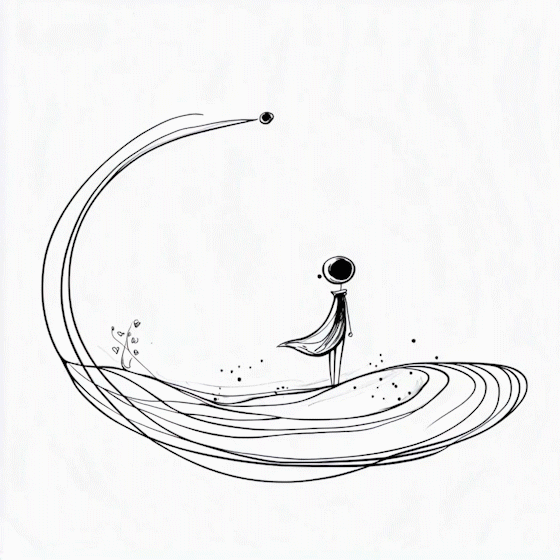
Is the Earth too Small for Humanity? Or Perhaps People are Too Large?
In the grand scheme of the Universe, the concepts of size and scale are relative. The infinite expanse of space, both at the macro and micro levels, challenges our traditional notions of what is large and what is small. As we stand on the brink of a new technological revolution, modern advancements in genetics offer us a unique opportunity to reimagine our place within this vastness.
MAGRATHEA Technologies presents a transformative vision where human height is reduced to twelve millimeters over the course of eight generations. This ambitious endeavor, supported by extensive research from Opus Minor Labs, promises to redefine the very essence of human existence and interaction with the environment. Let us embark on this journey to understand the profound implications and the meticulous planning involved in this unprecedented project.
Redefining Human Scale
The Universe, in its infinite complexity, operates on scales that often defy human comprehension. From the vastness of galaxies to the intricate details of atomic structures, size is a matter of perspective. In this context, reducing human height to twelve millimeters is not merely a scientific curiosity but a practical solution to pressing global challenges.
Opus Minor Labs has conducted extensive studies indicating that a gradual transition to smaller human sizes is essential. This transition, spanning eight generations, ensures that each step is carefully managed to provide necessary parental care, maintain effective communication, and undergo corrective medical-genetic adaptations. The goal is to create a seamless evolution, where each generation adjusts comfortably to their new stature.
Resource Efficiency at Its Best
Imagine a world where the resources required to sustain human life are dramatically minimized. A single cherry fruit, a grape, a wheat ear, or a chicken could suffice to meet the annual needs of several human cities. This vision transforms our current understanding of resource consumption and environmental impact.
In this future, the ecological footprint of humanity would be drastically reduced. Energy requirements would be minimal, with a photovoltaic cell covering just ten square meters capable of powering a small town. Human waste would be reduced to a mere handful, significantly easing the burden on waste management systems and promoting a cleaner, more sustainable environment.
Creating New Worlds: MAGRATHEA Technologies’ Role
At MAGRATHEA Technologies, we recognize the monumental potential of this vision. However, we also understand that the initial phases of this transformation will be complex and costly. Our mission is to create meticulously designed environments, or “planets,” tailored to support the needs of these future miniature humans.
These “planets” will be equipped with everything necessary for a self-sufficient and fulfilling life. From diverse natural environments and advanced infrastructure to cutting-edge technological capabilities, every detail will be crafted to ensure a harmonious existence. Our commitment is to provide not just habitats but thriving ecosystems where these new humans can flourish.
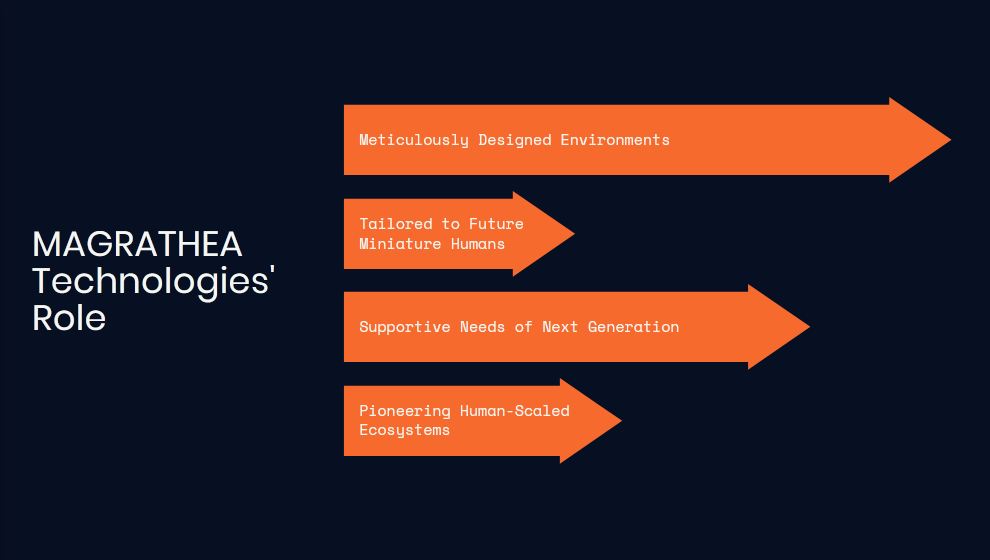
From Concept to Reality

First announcement (2024)
And here we are!
My Early Friends Project (Q3 2027)
The journey begins with the My Early Friends Project in 2027. This initial phase involves preparing environments for the first generations of smaller humans. As we welcome new companions such as aphids, mites, and ants, it is important to note that our traditional pets – dogs, cats, and guinea pigs – will continue to be cherished members of our households.
MAGRATHEA Technologies will assist in creating suitable environments for these “little ones,” who will eagerly await their owners from generation 8. These environments will be designed to cater to the unique needs of smaller humans, ensuring comfort, safety, and engagement.
Project COLORADO G1 (2029)
Following the success of the My Early Friends Project, we will launch Project COLORADO in the fall of 2029. This ambitious initiative aims to introduce the first generation of reduced-size humans and develop optimized surroundings for subsequent generations.
Project COLORADO G2 (2050)
By 2050, MAGRATHEA Technologies will have prepared environments where generation 2 can grow and raise generation 3, creating a continuous cycle of adaptation and improvement.
The environments designed for Project COLORADO will incorporate advanced technologies and sustainable practices. From energy-efficient housing to innovative waste management systems, every aspect will be optimized for the unique requirements of smaller humans. The goal is to create a blueprint for sustainable living that can be replicated and scaled as the project progresses.

The Little Prince Project: Personalized Environments for Special Clients
For those seeking a more exclusive experience, The Little Prince Project offers personalized, comprehensive environments tailored to individual preferences. These bespoke “planets” will feature unique natural landscapes, such as miniature versions of Everest and the Mariana Trench, providing a sense of adventure and exploration.
Each “planet” will be equipped with an independent technological and resource infrastructure, ensuring complete self-sufficiency. These environments will cater to the specific needs and desires of their owners, creating a harmonious balance between nature and technology. The Little Prince Project represents the pinnacle of our vision, offering an unparalleled living experience for our special clients.
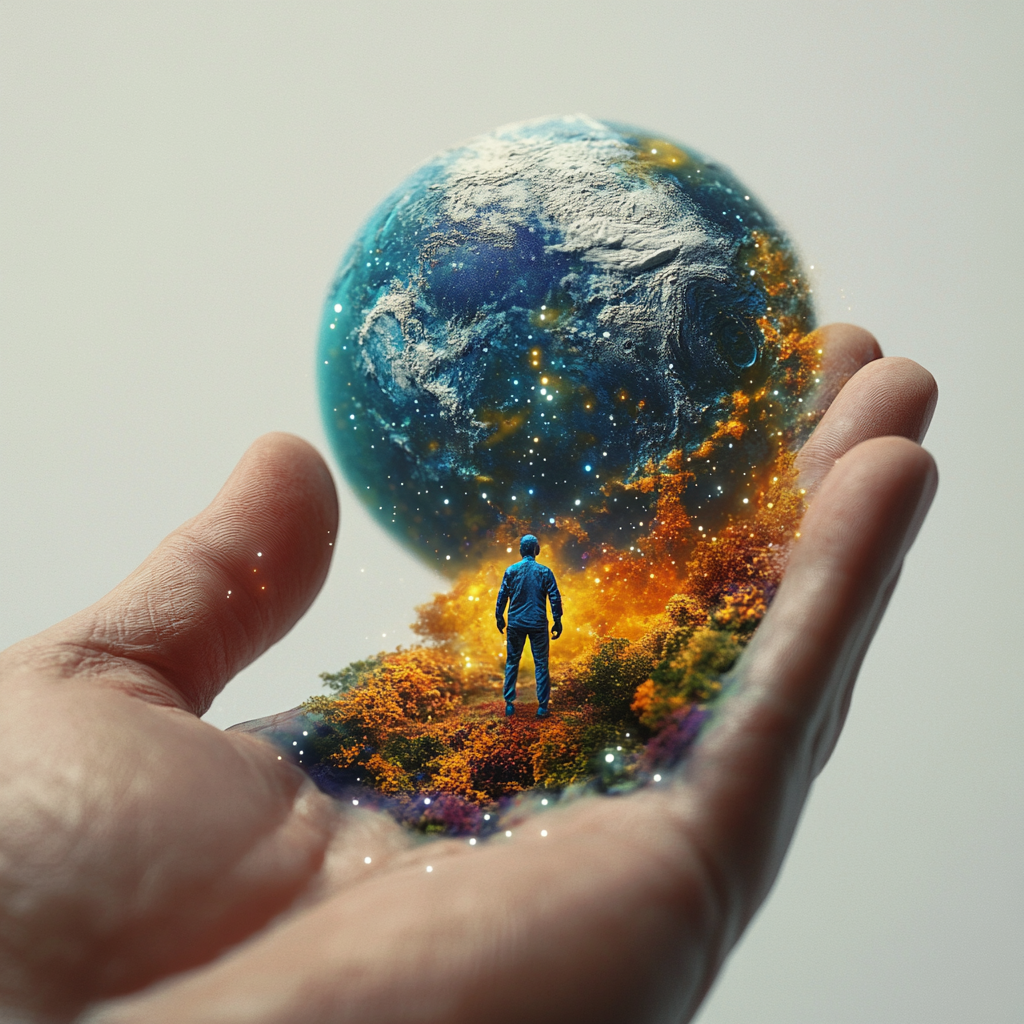
*MAGRATHEA Technologies is in no way involved with the biological, medical, and genetic developments and manipulations in these projects. MAGRATHEA Technologies solely develops and builds the material environment necessary for the optimal way of life for the participants in the projects. We simply create “planets”!
Ethical Implications
One of the foremost ethical considerations is the impact of genetic modifications on future generations. Ensuring informed consent and safeguarding the rights of individuals are paramount. Opus Minor Labs is dedicated to conducting rigorous ethical reviews and obtaining necessary approvals to ensure the integrity of the project.
Additionally, the potential for socio-economic disparities must be addressed. While the initial phases of the project may be accessible to only a select few, our long-term vision is to democratize the benefits of this transformation. By developing scalable solutions and fostering inclusive growth, we aim to create a future where everyone can thrive.
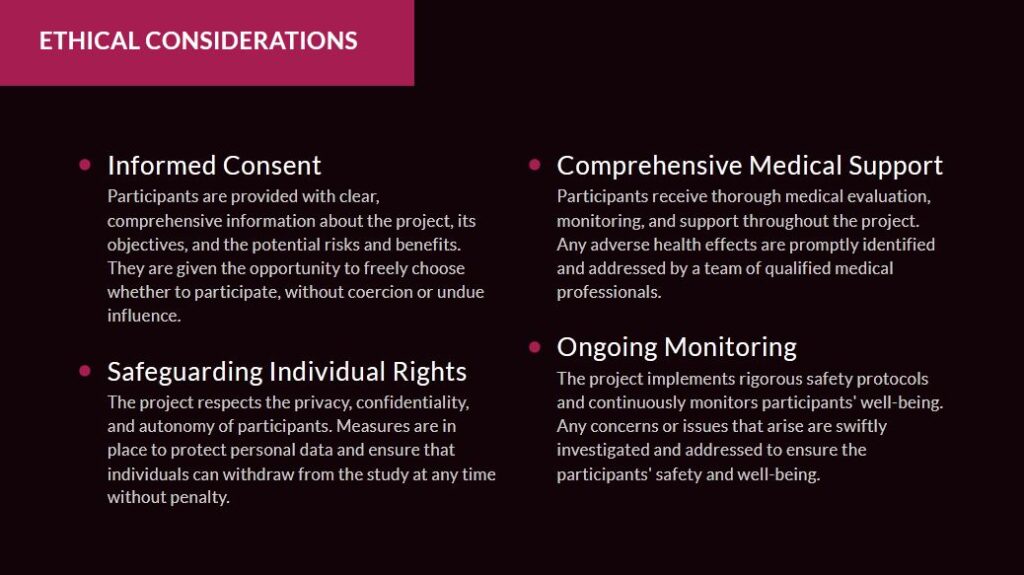
Legal and Medical Frameworks
As with any groundbreaking innovation, the path to realization involves overcoming significant legal and medical challenges. Opus Minor Labs is actively working to address these hurdles, with a realistic expectation of resolving all outstanding issues by the end of 2028.
Navigating the complex legal landscape surrounding genetic modifications and human rights is a critical aspect of the project. Opus Minor Labs is collaborating with legal experts and regulatory bodies to develop a robust framework that ensures compliance with all applicable laws and regulations. This framework will prioritize the protection of individual rights and the promotion of ethical practices.
Medical Advancements
The medical aspect of the project involves developing safe and effective methods for genetic modification and adaptation. Opus Minor Labs is leveraging cutting-edge research and technology to pioneer advancements in this field. Ensuring the health and well-being of participants throughout the transition is a top priority, with comprehensive medical support and monitoring in place.
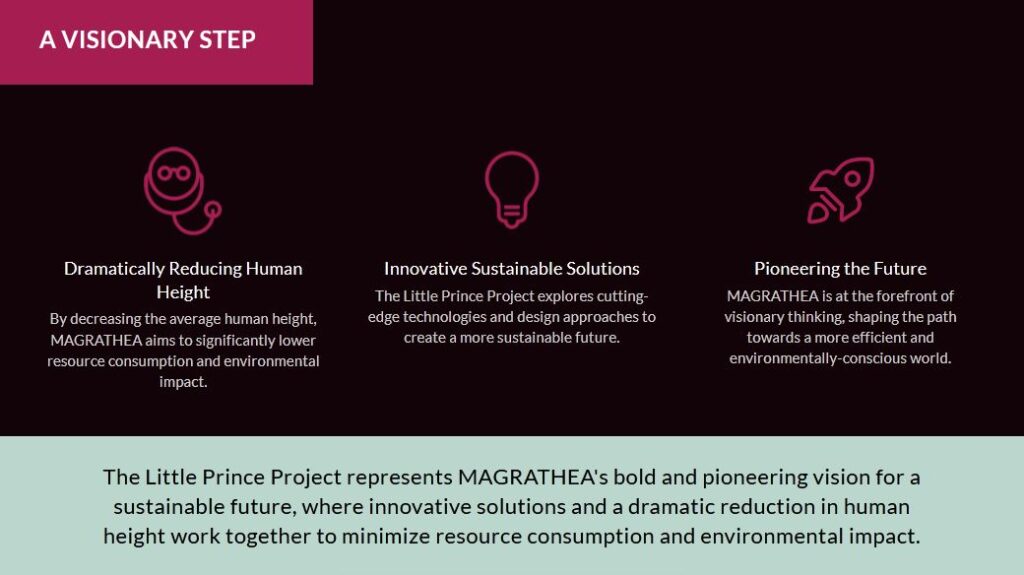
The practical benefits of reducing human size are immense. From alleviating the strain on natural resources to minimizing environmental impact, this transformation offers a sustainable solution to many of today’s global challenges. Furthermore, the reduced energy and resource requirements will promote economic efficiency and resilience, contributing to a more stable and prosperous society.
The Role of Innovation
Innovation is at the heart of this visionary project. By embracing cutting-edge technologies and fostering interdisciplinary collaboration, we aim to create a sustainable future that balances human needs with environmental stewardship.
Technological Integration
The environments developed by MAGRATHEA Technologies will integrate the latest advancements in sustainable technology. From renewable energy sources to smart infrastructure, these “planets” will serve as models for future urban development. Our commitment to innovation ensures that every aspect of the environment is designed for efficiency, sustainability, and resilience.
Interdisciplinary Collaboration
Achieving this ambitious vision requires collaboration across multiple disciplines. MAGRATHEA Technologies and Opus Minor Labs are working together with experts in genetics, medicine, psychology, engineering, and environmental science. This interdisciplinary approach fosters a holistic understanding of the challenges and opportunities, driving continuous improvement and innovation.
The journey to a new frontier of human existence is both exciting and challenging. As we stand at the threshold of this transformative era, we invite visionaries, innovators, and stakeholders to join us in realizing this bold vision.
MAGRATHEA Technologies is committed to pioneering the creation of environments that support and enhance this new way of life.
